Get Pavement Crack Filling in Denver, CO
Property owners in Denver and nearby areas can find local contractors who specialize in crack filling to repair and prevent pavement damage on driveways, parking lots, and sidewalks.
Property owners in Denver, CO, who are planning to maintain or improve the safety and appearance of their paved surfaces often consider crack filling as a practical solution. Over time, cracks can develop due to weather fluctuations, heavy traffic, or natural wear, potentially leading to further damage if left unaddressed. Exploring local contractors who specialize in pavement crack filling can help ensure that repairs are handled efficiently and effectively, preserving the longevity of driveways, parking lots, and walkways.
Comparing options among nearby service providers allows property owners to find experienced professionals equipped to manage crack filling projects tailored to Denver’s unique climate and terrain. Keeping your paved surfaces in good condition can prevent costly repairs down the line and maintain a professional appearance for commercial or residential properties. Keep reading to discover how local contractors can assist with your pavement maintenance needs.
- Parking Lot Repair - when cracks develop in commercial or residential parking areas, impacting safety and appearance.
- Sidewalk Maintenance - to address cracking and prevent trip hazards in walkways around Denver neighborhoods.
- Driveway Restoration - when cracks in residential driveways in areas like Capitol Hill or Highlands need filling to extend surface life.
- Street and Roadway Repair - for municipalities seeking to maintain smooth, safe streets in busy city corridors.
- Business Property Pavement - when cracks threaten the integrity of storefront parking lots or access roads in commercial districts.
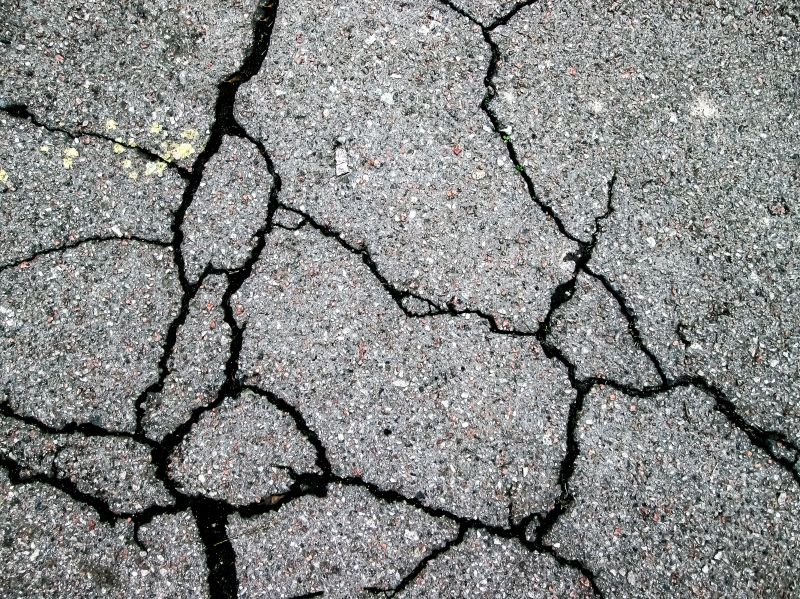
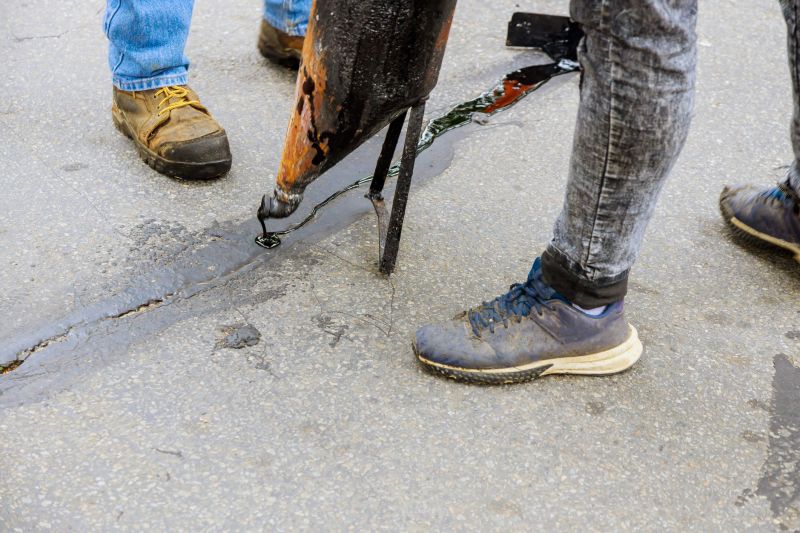
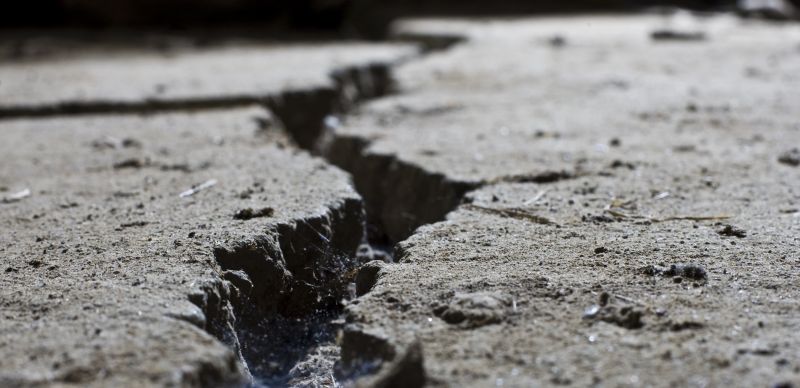
Pavement crack filling is a maintenance service that involves sealing existing cracks in asphalt or concrete surfaces to prevent further deterioration. The process typically includes cleaning out debris and loose materials from the cracks, then filling them with specialized asphalt or concrete patching compounds. This helps restore the integrity of the pavement, providing a smoother surface and reducing the risk of water infiltration that can cause further damage. Proper crack filling is an essential step in extending the lifespan of driveways, parking lots, walkways, and other paved areas.
Cracks in pavement are often the first signs of underlying issues such as soil movement, temperature fluctuations, or repeated stress from vehicle traffic. If left untreated, these cracks can grow larger, leading to more significant problems like potholes, uneven surfaces, and structural instability. Filling cracks early on helps prevent water from seeping into the base layers, which can weaken the foundation and cause more extensive and costly repairs down the line. This service is particularly effective in addressing small to medium-sized cracks before they develop into major pavement failures.
Various types of properties benefit from pavement crack filling services, including residential driveways, commercial parking lots, retail centers, and municipal streets. Homeowners might choose this service to maintain a safe and attractive driveway that resists the effects of weather and daily use. Business owners often rely on crack filling to keep their parking areas in good condition, ensuring safety and a professional appearance for customers. Municipalities and property managers also utilize crack filling to manage public and private roads, helping to maintain infrastructure and reduce long-term repair costs.
Property owners in areas like Denver, CO, and nearby communities often find pavement crack filling to be a practical solution for preserving their paved surfaces. This service is suitable for properties experiencing minor to moderate cracking or those preparing for sealcoating or other surface treatments. By addressing cracks promptly, property owners can help extend the life of their pavement, improve safety, and maintain a neat, well-kept appearance. Local contractors experienced in crack filling can assess specific needs and recommend the best approach for each property type.
The overview below groups typical Pavement Crack Filling projects into broad ranges so you can see how smaller, mid-sized, and larger jobs often compare in Denver, CO.
In many markets, a large share of routine jobs stays in the lower and middle ranges, while only a smaller percentage of projects moves into the highest bands when the work is more complex or site conditions are harder than average.
Smaller Repairs - Typical costs for small crack filling projects in Denver range from $250 to $600, covering minor surface cracks on driveways and walkways. Many routine jobs fall within this middle range, depending on the extent of the cracks and surface area.
Medium-Sized Projects - For larger areas or moderate crack repair work, local contractors may charge between $600 and $1,500. This range often includes repairs for multiple cracks or sections of pavement needing attention.
Extensive Repairs - Larger, more complex crack filling projects can cost $1,500 to $3,000 or more, especially when multiple sections or heavily cracked surfaces are involved. Fewer projects reach this high tier, but they are common for substantial pavement maintenance.
Full Replacement - Complete pavement replacement or extensive resurfacing work typically starts around $5,000 and can go significantly higher depending on the size and condition of the area. Local service providers can provide estimates based on specific project needs.
Actual totals will depend on details like access to the work area, the scope of the project, and the materials selected, so use these as general starting points rather than exact figures.
Pothole Repair - this project involves the use of similar tools and techniques to fill and seal pavement surfaces, requiring precise planning and surface preparation skills.
Asphalt Resurfacing - resurfacing projects demand expertise in surface assessment and the application of materials that ensure a smooth, durable finish comparable to crack filling work.
Pavement Sealcoating - applying sealants to protect asphalt surfaces involves surface cleaning and preparation skills similar to those used in crack filling to ensure proper adhesion.
Concrete Repair - repairing cracks or damages in concrete surfaces shares techniques for crack detection, surface cleaning, and material application with pavement crack filling.
Driveway Restoration - restoring and rejuvenating asphalt or concrete driveways requires planning, surface prep, and repair skills akin to crack sealing projects.
Surface Milling and Grinding - this process involves surface assessment and preparation, utilizing tools and techniques that are also essential in pavement crack filling services.
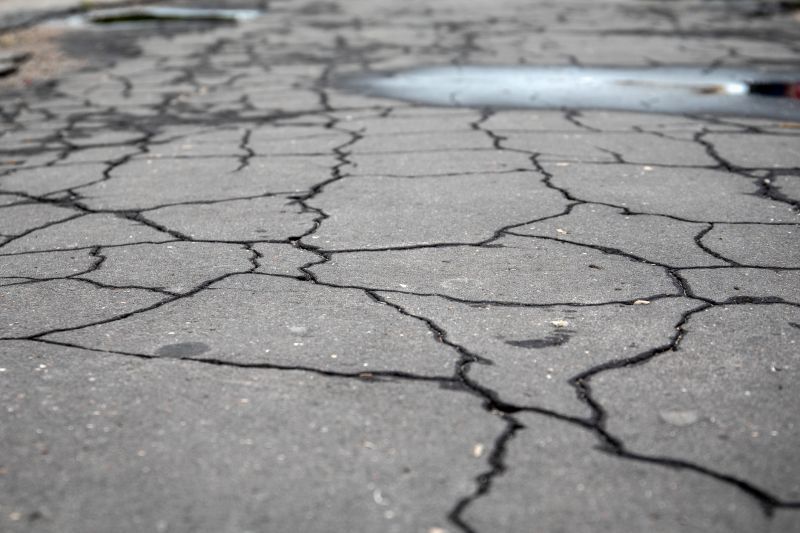
When comparing pavement crack filling services in Denver and nearby areas, it’s important to evaluate the experience of potential service providers with similar projects. Homeowners should inquire about how long a contractor has been working on crack filling and whether they have handled projects comparable in size and scope. An experienced local contractor will typically have a better understanding of the specific conditions that can affect the longevity of repairs and will be more familiar with the common issues faced by pavement in the local climate. This background can help ensure that the chosen provider is well-equipped to deliver results that meet expectations.
Clear, written expectations are essential when selecting a pavement crack filling service. Homeowners should seek detailed information about the scope of work, materials used, and the process involved, ideally documented in a written estimate or proposal. Having these details in writing helps prevent misunderstandings and provides a reference point throughout the project. It’s also wise to ask service providers for reputable references or examples of previous work, which can offer insight into their reliability and the quality of their results. Gathering feedback from past clients can help gauge whether a contractor consistently meets standards and delivers satisfactory outcomes.
Effective communication is a key factor when working with local pavement repair contractors. Homeowners should look for service providers who are responsive to questions, transparent about their methods, and willing to explain the work process clearly. Good communication ensures that expectations are aligned and that any concerns can be addressed promptly. Remember, this site introduces homeowners to local pros who can handle the work, rather than performing the work directly. Taking the time to compare these aspects-experience, clear expectations, references, and communication-can help homeowners find a reliable partner capable of completing pavement crack filling projects effectively.
Property owners in Denver, CO use Pavement Crack Filling services for practical projects around their homes and businesses. This guide focuses on everyday jobs and straightforward project options.
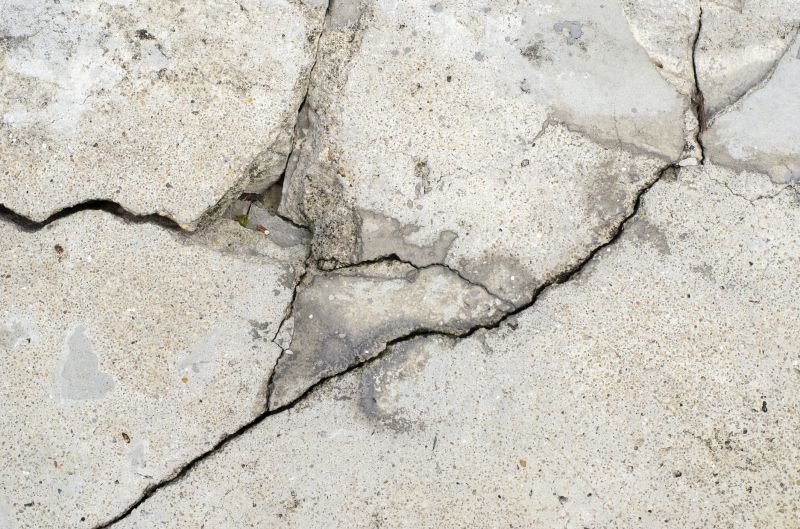
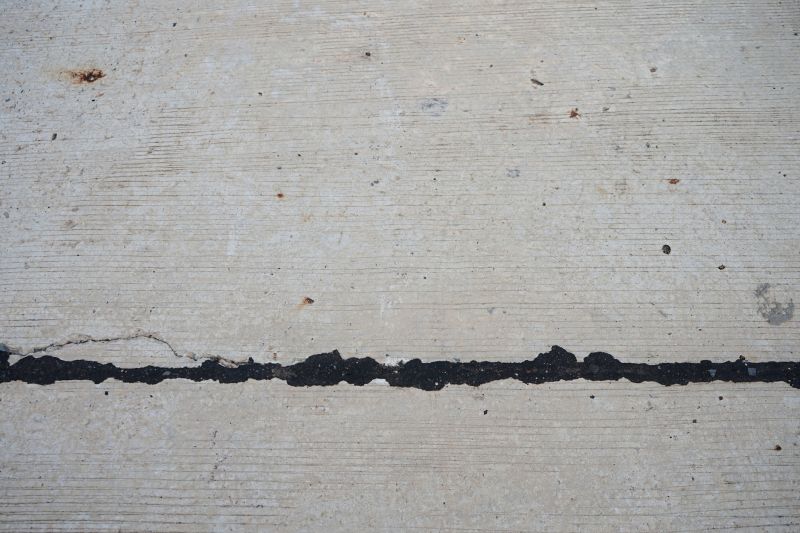
Pavement crack filling services are often needed by property owners in Denver, CO who notice cracks developing in their driveways, parking lots, or walkways. These cracks can occur due to temperature fluctuations, ground shifting, or regular wear and tear, which are common in the Denver area’s climate. Addressing these issues promptly can help maintain the appearance and functionality of outdoor surfaces, preventing further damage that could lead to more costly repairs down the line.
Local contractors specializing in pavement crack filling are equipped to handle a variety of project situations, whether it’s a residential driveway showing early signs of cracking or a commercial parking lot with larger surface issues. Property owners might seek these services to improve curb appeal, ensure safety for pedestrians and vehicles, or simply preserve the value of their property. Connecting with experienced service providers can help keep outdoor surfaces in good condition and extend their lifespan.
What are pavement crack filling services? Pavement crack filling involves sealing cracks in asphalt or concrete surfaces to prevent water infiltration and further damage, helping to extend the lifespan of driveways, parking lots, and roads.
Why should I consider crack filling for my pavement? Filling cracks can help prevent larger potholes and surface deterioration, maintaining the appearance and functionality of the pavement over time.
How do local contractors perform crack filling? Contractors typically clean the cracks, then apply a specialized sealant or filler to seal the openings and protect the pavement from water damage and debris intrusion.
Are there different types of crack filling materials? Yes, various sealants and fillers are available, including hot rubberized asphalt and cold-pour crack fillers, chosen based on the pavement type and crack size.
How can I find local service providers for crack filling? This website can help connect with local contractors experienced in pavement crack filling, allowing comparison and selection based on specific project needs.
Preventing Further Damage - Filling cracks in pavement can help stop water from seeping in and causing bigger issues during Denver’s seasonal changes.
Improving Curb Appeal - Sealing surface cracks can make driveways and walkways look well-maintained and inviting for visitors or potential buyers.
Extending Pavement Lifespan - Regular crack filling with help from local contractors can preserve the integrity of the pavement and delay costly repairs.
Ensuring Safety - Repairing cracks reduces trip hazards and creates a safer surface for everyday use around residential or commercial properties.

If you are thinking about Pavement Crack Filling for a property in Denver, CO, this guide is meant to help you understand the work, the typical project types, and how different options might fit your plans.
When you are ready, you can use the quote form on this page to share a few details about your project. From there, local pros can review the basics and respond with options that match what you have in mind.
